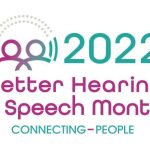Those who suffer from hearing loss know just how exhausting it can be. Even the most social among us find themselves needing to leave the gathering early when hearing loss makes it impossible to hear what others are saying. It can be a lonely experience. Over time, we might choose to stay at home more often than meet up with friends and family, and a host of other problems related to untreated hearing loss can creep in.
Fortunately, hearing aids can allow us to clearly hear the people we love, and give us back our normal conversational acuity. When hearing is less of an issue, we’ll also find that we don’t get tired as easily, and social gatherings become joyful experiences once again.
Hearing Loss and the Brain
In order to understand how hearing loss makes us tired, we need to know a little bit about how the brain works when we carry on a conversation.
Normal Hearing
Under normal circumstances, the brain receives information from the ears in an area called the auditory cortex. The auditory cortex sifts through the information it gets and determines what parts of it are background noise, what is speech, what is a fork being dropped on the other side of the room, and so on. In a normal-hearing young person’s brain, it’s usually no trouble to determine the difference between two speakers and to focus on one and not the other, even though both might be heard clearly. The auditory cortex is also closely tied to short-term memory, so it is easy to remember the things we’ve just heard.
When hearing loss enters the picture, this finely tuned system becomes massively disrupted. Rather than handling all this work in the background, the auditory cortex can no longer do its job effectively. An ear that doesn’t capture enough sound is essentially starving the auditory cortex of what it needs most: information.
How Hearing Loss Disrupts Normal Brain Functioning
With hearing loss, we pick up bits and pieces of speech. It may not be clear which bits came from which people. The picture we get of the sonic landscape is very confusing. But we know that there is speech happening and we want to understand it. Now discerning what has just been said becomes a project for the frontal cortex, the area of the brain responsible for our higher-order thinking and creativity. Here, we use context clues and guessing to try to piece sentences together. When we can’t figure it out, we decide to ask our conversational partner to repeat themself. All of this is mental work being done in the frontal cortex, while we still try to do the usual work of carrying on a conversation.
It’s almost as though we’re trying to carry on two conversations at once: one with a person in the room, and one with our own hearing loss! It’s no wonder we become exhausted.
Study Finds: Hearing Aids Can Help
A study published in November 2021 in the journal Trends in Hearing found that hearing aids do, indeed, alleviate the increased social fatigue associated with hearing loss. The study, called “Hearing Aids Reduce Daily-Life Fatigue and Increase Social Activity: A Longitudinal Study,” was conducted in Scotland over six months.
The study included 106 participants between ages 18–75. Researchers followed two groups of participants who had self-reported hearing issues. One group, recruited from the Glasgow Royal Infirmary audiology department, got hearing aids at the beginning of the study. The other group continued without hearing aids. All participants had a primary complaint of hearing loss, as opposed to tinnitus or vestibular issues.
Participants were surveyed about their experience and outcomes four times: once before being fitted with hearing aids, and after two weeks, three months, and six months of wearing them.
Study Results
Researchers found that, compared to the control group, those who got hearing aids reported significantly less listening fatigue. Their social activity levels increased, and social participation restriction decreased. The changes were significant, across the board.
These outcomes were to be expected. It makes sense that hearing loss, by itself, reduces our social participation and increases our fatigue due to the increased effort it takes to listen to speech.






